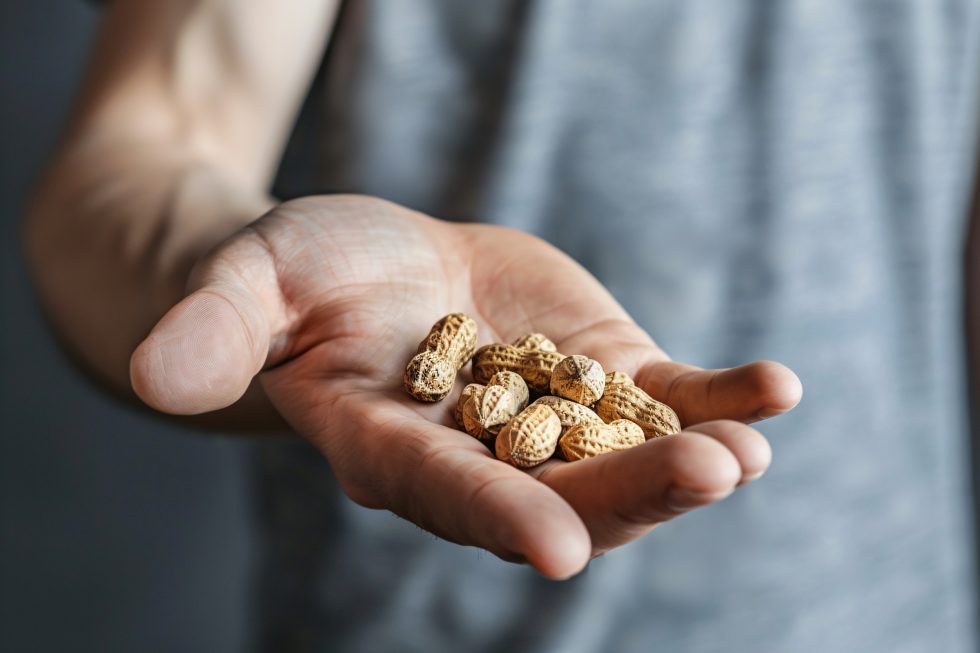
Why Has There Been a Rise in Peanut Allergies?
Dining out has been your and your partner’s favorite form of entertainment for years. When a new place opens to rave reviews the next thing you know, you are both consulting your calendars to see just how fast you can get there! You both share an affinity for Asian food however, a damper has been put on your adventures because the last place you tried left your partner with stomach cramps, leaving her to wonder if, like her sister, she has developed a peanut allergy.
Peanut allergies have become more prevalent in recent years, with significant implications for individuals and families. In the United States alone, peanut allergies affect a substantial portion of the population, particularly children, and the severity of these allergies demands heightened awareness and proactive measures.
Understanding Peanut Allergies
Peanut allergies are not only common but also among the most severe food allergies. These allergies have surged across the U.S. and other Western nations. Statistics indicate a 21% increase among U.S. children between 2010 and 2017 and currently, an estimated 2.5% of the U.S. children may have a peanut allergy. Each year over 200,000 individuals across the United States require emergency treatment due to food allergies.
Although nut is in their name, peanuts aren’t true nuts that grow on trees such as almonds, walnuts, pecans, and other nuts. Peanuts are part of the legume family—think peas, soybeans, and lentils. While fewer than 10% of people outgrow tree nut allergies, 20% of those with peanut allergies might. Of those allergic to peanuts, 25% to 40% also react to at least one tree nut.
Understanding what might lead to a peanut allergy and why people react to peanuts is crucial. Scientists speculate that proteins in peanuts resembling certain pollens may trigger an immune response, leading to allergic reactions. Contrary to previous advice, recent research suggests that early exposure to peanuts might promote tolerance and reduce the risk of allergies later in life.
Symptoms of a peanut allergy may include:
- Hives
- Tingling or itching of the mouth
- Vomiting
- Swelling that can affect the tongue and/or lips, around the eyes
- Stomach cramps, indigestion, diarrhea
- Itchy/watery eyes, runny nose
- Sneezing, coughing
- Wheezing, shortness of breath, difficulty breathing
- Repetitive cough
- Tightness in throat, hoarse voice
- Weak pulse
- Pale or blue coloring of the skin
- Dizziness/fainting
- Confusion
- Low blood pressure
Factors Contributing to the Rise
If a sibling or parent is allergic to peanuts, the odds of a child also being allergic increase. The odds increase even more if both parents are allergic. About 20% of peanut allergies have links to certain gene regions at the chromosomal level. Other factors include:
Hygiene
It is suspected that increased peanut allergies are related to improved hygiene and daily washing with soap which may make it easier for peanut proteins to bypass the digestive system and penetrate the skin.
The hygiene hypothesis theory suggests that as lifestyles have trended toward indoor and cleaner living as well as the availability of medications that quickly treat infections, our immune systems become more prone to attack the harmless proteins found in pollen, foods, and animal dander. The theory is that children exposed to fewer germs have immune systems that fail to develop properly and are unable to differentiate between the harmful and harmless. This immune confusion leads to the development of allergies. The same mechanisms that fight allergies also fight parasites. Less exposure to parasites may lead to the immune system turning against things that it would otherwise deem harmless.
As family sizes have shrunk and access to clean water has increased, it has become common to wash babies daily, which was not the norm 50 or even 25 years ago. It could be that skin permeability to foreign proteins has changed and might be reversible if habits change.
Vitamin D
A lack of Vitamin D is another potential contributor to peanut allergies. Vitamin D is critical in maintaining the immune system; however, many do not get enough of it. In the U.S., the rate of those who are deficient has nearly doubled over a decade. An under-supported immune system can lead to more susceptibility toward allergic reactions.
Allergen Exposure
Other food allergy theories center around early versus delayed introduction to certain foods along with preparation and how that might impact the body’s tolerance.
The “dual allergen exposure” theory suggests that a balance between time of introduction, dose, and form of exposure impacts food allergy development. The thinking is if a child eats trigger foods as they wean it can lead to the prevention of an allergic response because the gut is prepared to tolerate bacteria and new substances. This becomes more important if a baby has eczema as allergy antibodies can develop through exposure via broken skin.
King’s College London conducted a study that found an 80% reduction in peanut allergies among 5-year-old children who regularly consumed peanut butter during their first year. The findings led to adjustments in the U.S. dietary guidelines regarding infant peanut consumption.
Navigating Everyday Challenges
Peanut proteins are in many foods, so it’s important to read labels and recognize where they might lurk. Fortunately, in the U.S., the Food Allergen Labeling and Consumer Protection Act of 2004 requires manufacturers of packaged food to clearly label peanut-containing products. Exposure to peanuts is possible through surface cross-contamination of restaurant surfaces even if your dish has no peanuts. Those who are gluten-free should watch out for lupine which is a common flour substitute, and which has an unusually strong possibility of a cross-reaction between it and peanuts. Some lawn fertilizing composts use peanut shells so be sure to check the label or ask your contractor to avoid their use. Individuals with suspected allergies should maintain a food diary and seek clinical evaluation for accurate diagnosis and management.
Managing Peanut Allergies
It is essential to recognize symptoms of a severe allergy promptly and administer appropriate treatment, typically involving an epinephrine auto-injector. Antihistamines will not stop an anaphylactic reaction.
Anaphylaxis is a severe rapid onset allergic shock. This life-threatening whole-body response to an allergen may include swelling of the throat, impaired breathing, a sudden drop in blood pressure, pale skin or blue lips, fainting, and dizziness. These symptoms require immediate use of an epinephrine auto-injector and emergency medical treatment. It is important to note that any who experience a severe case of anaphylaxis should be admitted to the hospital and monitored overnight until stable. Biphasic anaphylaxis may occur in some cases where symptoms recur up to 8 hours after the initial reaction.
Innovations in Treatment
Children between 4yo and 17yo who have a documented allergy may benefit from peanut oral immunotherapy or epicutaneous therapy where tiny amounts of peanut are introduced over time to build up tolerance and reduce the risk of severe reaction or anaphylaxis. These treatments are not without side effects—aside from the potential for anaphylaxis, resulting damage to the tissue of the esophagus can make swallowing difficult. Even with this treatment, it is crucial to avoid peanuts and carry two epinephrine auto-injectors to avoid an anaphylactic response.
Peanut allergies pose significant and often unwelcome challenges to affected individuals and their families. Understanding the mechanisms behind these allergies, implementing preventive measures, and adopting effective management strategies are crucial steps in mitigating their impact and working towards a safer and more inclusive environment for individuals with peanut allergies. Visit AFC Urgent Care Tyvola Road for prompt care if you are experiencing a reaction that doesn’t seem to go away.


